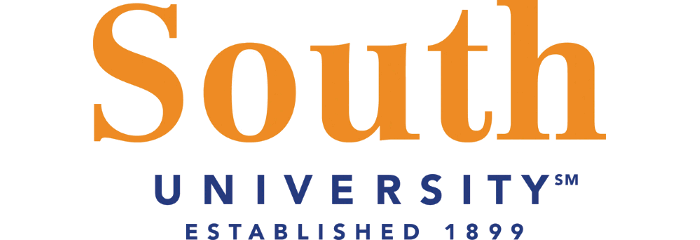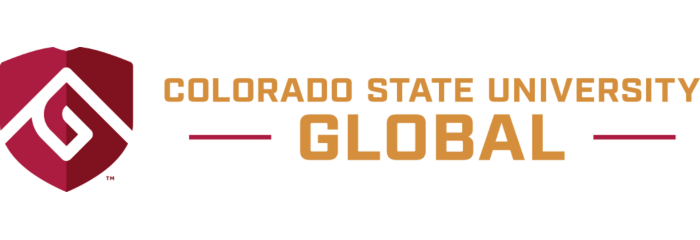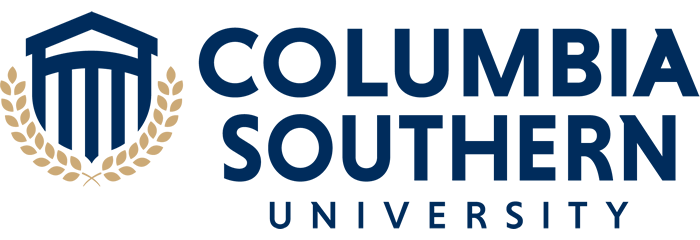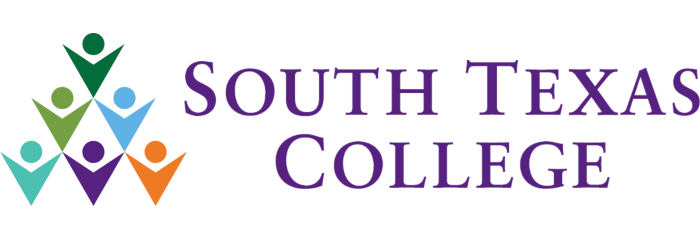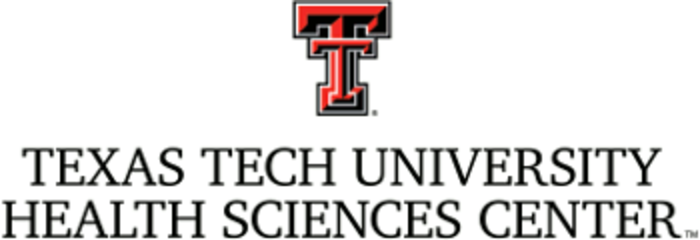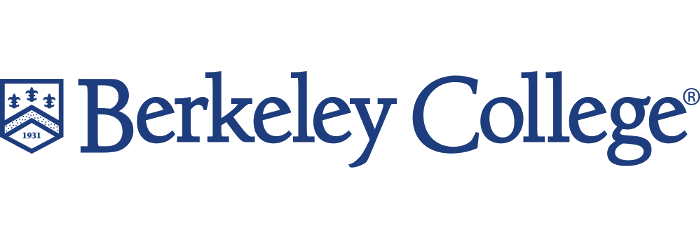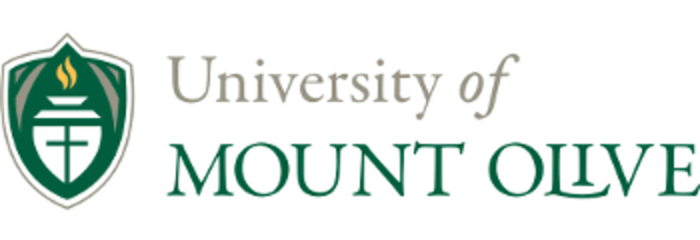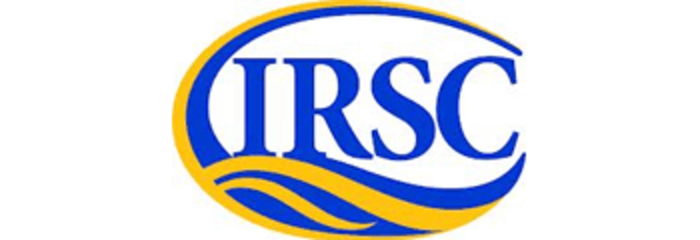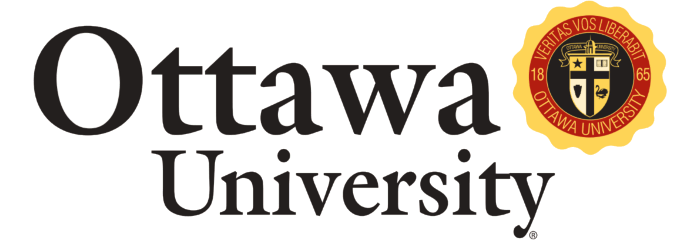Most Popular Health Care Management Degrees Online 2025
Explore the most popular health care management degree online programs by reviewing accredited schools with the highest number of graduates in this field.
Key Takeaways:
- Southern New Hampshire University tops the list with 1,000+ graduates from its online BS in Healthcare Administration - Patient Safety and Quality.
- Texas Tech University Health Sciences Center offers the most direct access to faculty, reporting a 7:1 student-to-faculty ratio.
- Charter Oak State College achieves perfect retention, with a 100% first-year persistence rate.
Read our methodology to see how we verify eligibility and rank schools based on graduate count. Below our list, we spoke with Tari Owi, a healthcare operator and strategist, who provides advice for prospective students seeking a degree in healthcare management online.
Most Popular Health Care Management Degrees Online 2025
| Rank | School | Graduates | Annual Tuition | Median Salary | Recommendation |
|---|---|---|---|---|---|
| Southern New Hampshire University Online | 1,064 | $9,900 | $61,580 | 69% | |
| University of Maryland Global Campus | 221 | $14,970 | $66,000 | 70% | |
| South University Online | 177 | $14,250 | $45,275 | N/A | |
| Colorado State University Global | 129 | $11,250 | $70,587 | N/A | |
| Columbia Southern University | 128 | $8,100 | $60,480 | 79% | |
| South Texas College | 85 | $7,620 | $46,735 | 100% | |
| Liberty University | 66 | $11,700 | N/A | 75% | |
| Texas Tech University Health Sciences Center | 65 | $19,396 | $65,394 | 98% | |
| Berkeley College | 50 | $27,900 | $49,912 | N/A | |
| University of Mount Olive | 40 | $13,650 | $58,202 | 100% | |
| Indian River State College | 36 | $12,000 | $45,993 | 79% | |
| Charter Oak State College | 28 | $9,870 | $76,376 | 80% | |
| Southeast Missouri State University | 28 | $8,576 | N/A | 93% | |
| University of Wisconsin - Green Bay | 26 | $17,887 | $53,897 | 100% | |
| Ottawa University Online | 26 | $14,970 | N/A | 86% |
Most Popular Health Care Management Degrees Online 2025 - Program Details
- Graduates: 1,064
- Annual Tuition: $9,900
- Median Salary: $61,580
- Recommendation: 69%
Why we like them: Ranked in our #1 slot, SNHU awarded 1,064 bachelor’s degrees in this discipline. The Patient Safety and Quality concentration is described as one of only a few baccalaureate-level options of its kind, giving you direct preparation in compliance, risk analysis, and performance improvement, a niche we rarely see at the undergraduate level. The curriculum aligns to AUPHA’s competencies tied to the Healthcare Leadership Alliance.
- Graduates: 221
- Annual Tuition: $14,970
- Median Salary: $66,000
- Recommendation: 70%
Why we like them: At UMGC, you can earn an embedded undergraduate certificate in health information management and data analytics by choosing targeted electives while completing the major, and the curriculum is designed to prepare you for AHIMA’s CHDA exam. You also benefit from a refreshed business core (effective fall 2025) that integrates courses like Data, Cybersecurity, and AI in Business Strategy.
- Graduates: 177
- Annual Tuition: $14,250
- Median Salary: $45,275
- Recommendation: N/A
Why we like them: SUO’s online BS in Healthcare Management is accredited by ACBSP, giving you a business-accreditor lens in this field. We also find the inclusion of Managerial Epidemiology in Healthcare Administration at the undergraduate level distinctive, paired with a strategy sequence that links finance, health information systems, workforce management, risk management, and case-study analysis for integrative decision-making.
- Graduates: 129
- Annual Tuition: $11,250
- Median Salary: $70,587
- Recommendation: N/A
Why we like them: CSU Global has a tuition‑lock promise — $375 per credit, no fees, no out‑of‑state charges, and no tuition increases. In terms of the healthcare management program, you can stack healthcare‑specific microcredentials into the degree, such as Healthcare Quality and Patient Safety, Long Term Care Administration, and Public Health Leadership. Graduates with this degree earn a median yearly salary of $70,587 four years later.
- Graduates: 128
- Annual Tuition: $8,100
- Median Salary: $60,480
- Recommendation: 79%
Why we like them: What makes CSU especially appealing is that among online bachelor’s programs, allowing students to transfer up to 75% of the degree is highly uncommon. Also, most online health care administration programs require students to purchase textbooks or digital materials separately—often adding hundreds or thousands of dollars across a full program. CSU’s textbooks-included model sets it apart and significantly reduces out-of-pocket costs.
- Graduates: 85
- Annual Tuition: $7,620
- Median Salary: $46,735
- Recommendation: 100%
Why we like them: At STC, you would get a Bachelor of Applied Technology, which is a skills-forward, applied management emphasis that would differentiate your degree from standard BA/BS tracks. You follow a defined four-year sequence with early exposure to medical insurance and coding, then move into specialized management courses such as Statistics for Health Care Managers, Risk Management for Health Professionals, and Project Management for Healthcare.
- Graduates: 66
- Annual Tuition: $11,700
- Median Salary: N/A
- Recommendation: 75%
Why we like them: Liberty’s online BSBA in Healthcare Management pairs sector-specific training with data analysis and carries ACBSP accreditation, with Liberty noting the School of Business is among only 3% worldwide to earn this credential. The curriculum blends healthcare informatics with legal and ethical coursework specific to health systems, so you can practice data-driven decision-making.
- Graduates: 65
- Annual Tuition: $19,396
- Median Salary: $65,394
- Recommendation: 98%
Why we like them: TTUHSC's online BSHM has a two-track design that maps your background to the fastest path forward. If you hold a license or certification in fields such as radiologic technology, respiratory care, EMS, or OTA/PTA, you can enter the Healthcare Professional Concentration and apply up to 48 related technical credits. If you seek leadership prep, the Executive Management concentration emphasizes advanced managerial depth, including an 8-hour capstone-style advanced case study.
- Graduates: 50
- Annual Tuition: $27,900
- Median Salary: $49,912
- Recommendation: N/A
Why we like them: BC delivers a BBA, not a BA/BS, anchoring you in an accredited business core from the Larry L. Luing School of Business while you specialize in health services management. We appreciate the online-only internship courses as a differentiator, and as part of this degree you move through a communication-intensive sequence that includes Health Communications, Public Speaking, and The Confident Writer, which helps position you for stakeholder-facing roles.
- Graduates: 40
- Annual Tuition: $13,650
- Median Salary: $58,202
- Recommendation: 100%
Why we like them: UMO boasts accelerated 7.5-week courses and multiple start dates, giving you true pace control. The curriculum sits in an ACBSP-accredited business school, so you study healthcare management through a vetted business lens. Preparation for the Institute for Healthcare Improvement’s Basic Certificate in Quality and Safety is embedded, letting you earn a recognizable credential while you study.
- Graduates: 36
- Annual Tuition: $12,000
- Median Salary: $45,993
- Recommendation: 79%
Why we like them: IRSC runs this as a selective-admissions bachelor’s program, which signals curated cohorts and clearer progression requirements. The curriculum emphasizes applied learning through a sequenced trio — case studies, a practicum, and a capstone. If you are motivated, you can plug into Health Occupations Students of America (HOSA) at IRSC for leadership development and competitive experiences aligned to health careers.
- Graduates: 28
- Annual Tuition: $9,870
- Median Salary: $76,376
- Recommendation: 80%
Why we like them: COSC boasts CAHIIM accreditation coupled with the CAHIIM School of Distinction designation through 2031, which is a high quality signal. You can translate industry credentials into large blocks of credit — RN up to 64 credits, RHIA 48, Paramedic 41, RHIT 37, CPMA 25, CPC 19, and more. We also appreciate that project work includes real-world simulations. Graduates earn a median salary of $76,376, which is in the top 7% nationally for earners in this field.
- Graduates: 28
- Annual Tuition: $8,576
- Median Salary: N/A
- Recommendation: 93%
Why we like them: SEMO gives you a choice between two built-in tracks, either Healthcare Quality or Healthcare Informatics. We also like that you can complete a required internship rather than an optional practicum, so you graduate with structured, supervised experience in a health organization. We find the mandatory Microsoft Excel Certification distinctive as well.
- Graduates: 26
- Annual Tuition: $17,887
- Median Salary: $53,897
- Recommendation: 100%
Why we like them: UW-Green Bay, rated 100% by students we surveyed, delivers HIMT through the UW Online Collaboratives, letting you take courses from faculty across the UW System rather than a single campus. We also value the flat $460-per-credit tuition for in- and out-of-state learners with no segregated or technology fees. The description boasts an 86% RHIA pass rate (versus 68% nationally) and 100% job placement within a year.
- Graduates: 26
- Annual Tuition: $14,970
- Median Salary: N/A
- Recommendation: 86%
Why we like them: Ottawa’s clinical track is notably transfer-friendly for licensed or registered professionals, allowing you to bring in a minimum of 30 hours of clinical or lab coursework and, if you hold post-primary credentials, potentially apply additional upper-division credit. If you want, you can tailor the degree through built-in concentrations, including Economics, Finance, Human Resources, or Leadership and Management.
Expert Advice From a Multi-Site Healthcare Leader on Succeeding in Health Care Management

Healthcare Operator
What types of leadership or administrative roles can graduates pursue with an online health care management degree?
"As technology advances and patient needs adapt to the digital age, graduates with training in digital health, project management, and product development will be highly sought out. Healthcare systems of the future will need team members adept and understanding consumer needs and trends now that consumers have access to more tools and options than ever.
Roles such as program coordinators, product developers, patient access and experience analysts, and more will continue to be in demand."
How are trends like telehealth, value-based care, and AI transforming healthcare management education?
"Students going into this degree should be looking for opportunities to translate predictive analytics and robust data into practice management insights. Success in this age will require leaders to be able to interpret and analyze many sources of data and incentive programs and make meaningful insights to coordinate efforts across payor incentives, system metrics, and operational needs."
Students going into this degree should be looking for opportunities to translate predictive analytics and robust data into practice management insights.
How can online students gain real-world experience or internships in healthcare administration while studying remotely?
"There are many ways to learn and develop skills while studying remotely!
Look for companies in the healthtech ecosystem. Many are moving to remote first employment practices, which enables students to work virtually on a myriad of areas of value — population health, digital health tools, practice management, provider staffing are all areas that lend themselves to remote internships.
Students should also feel encouraged to reach out directly through LinkedIn, social media and other networking channels to leaders across health systems. Many will have opportunities for data analysis, virtual meeting shadowing, and more that can be done remotely."
What are the most in-demand skills for graduates in this field today?
"Human factors such as emotional intelligence, attention to detail, and professionalism remain in-demand skills for graduates in this field.
In addition, practical skills in data analysis, financial reporting and analysis, user experience, project management, quality improvement, and product management will open doors for graduates."
EXPERT TIP
"Leverage the resources that online degree programs offer such as networks with other graduates, additional training and classes in other degree programs, virtual seminars, and more."
FAQs About Online Health Care Management Degrees
What Do You Learn in an Online Health Care Management Degree?
A health care management degree online equips you with the skills needed to excel in the rapidly evolving healthcare industry. Combining coursework in healthcare systems, policy, finance, and leadership, these programs help prepare you for managerial roles to address the growing demand for skilled healthcare managers.
The goal of healthcare management bachelor's degrees is to produce administrative leaders who can manage medical facilities. As a student of this major, your instructors will try to instill knowledge of the U.S. healthcare system, effective business practices, and data analysis, along with critical-thinking and communication skills.
Bachelor's degrees in healthcare management usually require 120 credit hours of coursework, with about half of that dedicated to electives and core courses in the major. This is supposed to take four years, though you could potentially graduate early or take longer to finish the degree. Your program might feature an optional or required internship toward the end of the curriculum, which would allow you to gain real-world experience in a healthcare office.
Most program administrators design online degrees to feature asynchronous courses with no set meeting times. This is because the convenience of asynchronous learning has increased the popularity of online degrees.
If you pursue a healthcare management degree online, you will sign in to a learning management system to watch recorded lectures, read assignments, submit work, and ask and answer questions in discussion forums with your classmates and professor.
Note that you'll complete any internship requirements live at an employer's facility, even if all of your coursework is online.
What Concentrations Can You Choose in a Healthcare Management Degree?
Healthcare is a vast and complex field, and not every aspect is likely to appeal to you. You might prefer to tailor your studies with a concentration in an area of interest, which could potentially improve your marketability in that narrower area.
In truth, healthcare management is itself often a concentration of another major, such as business or health sciences. For example, you might pursue a Bachelor of Science in Business Administration with a concentration in healthcare management. But some Bachelor of Science in Healthcare Management programs offer concentrations of their own, and we've listed a few of these below.
- Finance is crucial to keeping the lights on at any medical facility. Your healthcare finance professors will lecture on microeconomics, budgets, medical billing, and the U.S. medical insurance system.
- Human resources (HR) specialists recruit, train, compensate, and monitor the progress of healthcare employees. As a student in this concentration, you may learn about hiring and retention practices, performance management, employee benefits plans, and HR technology.
- Healthcare technology is changing fast and expanding into every corner of the health industry. Courses in this concentration generally cover information technology, medical record-keeping applications, clinical and diagnostic machines, and cloud computing.
What Courses Are Included in a Healthcare Management Bachelor’s Program?
Each healthcare management program is different, but most of them have comparable learning outcomes that target the same competencies. For this reason, their curricula often contain many similar courses. We've listed a few of these common classes here to give a flavor for what you'll encounter as a bachelor's student.
- Healthcare Law: Students learn to navigate the complicated legal landscape in healthcare. Topics usually include HIPAA and its updates, the federal regulatory framework, state healthcare laws, and partnerships with legal counsel.
- Management and Strategy: This course's syllabus pulls readings and lessons from organizational leadership and applies them to health settings. Faculty often cover leadership theories, the psychology of motivation, organizational behavior, and strategic planning and budgeting.
- Marketing in Healthcare: Health managers need to ensure that potential patients are aware of their facilities, so they need to understand marketing as well as any business leader. As such, this class contains lessons on market research, the marketing mix, brand management, digital venues, and maintaining customer relationships.
- Quality Control and Risk Management: The quality of patient care has real consequences for people's lives, and any lapses put their facilities at risk of censure from regulators. This class covers how to ensure a consistently high level of care, from developing safety routines to performing regular quality audits.
What Accreditations Should You Look for in a Healthcare Management Program?
Accreditation is a seal of approval from an independent review organization. Institutions can earn accreditation, but so can individual degree programs. Institutionally accredited schools are eligible to offer federal financial aid, which is an important consideration for most college students.
Programmatic accreditation may further attest to the quality of a degree's curriculum and instruction. The following accreditors review healthcare management programs.
The Association to Advance Collegiate Schools of Business in what it calls "health services/hospital administration."
The Accrediting Bureau of Health Education Schools features a that it accredits.
The International Accreditation Council for Business Education offers a searchable form for .
What Jobs Can You Get With a Healthcare Management Degree?
You may set down several career paths with a healthcare management education. Your classes contain lessons about the U.S. healthcare system, but they typically also reinforce transferable skills that can serve well in a variety of management roles, such as critical thinking, problem-solving, and effective communication.
- maintain the smooth operation of their employers' facilities. They require a detail-oriented mindset, knowledge of budgeting and HR, and strong organizational skills, all of which a healthcare management degree usually teaches.
- oversee administrative functions within organizations, including recruitment, employee relations, and benefits administration. This field has the most tenuous connection to healthcare management because HR managers often have undergraduate or advanced degrees specifically in HR. However, you might be able to earn an HR concentration during your healthcare management bachelor's degree, which may help you capture the interest of hiring managers outside the healthcare field.
- oversee the planning, coordination, and administration of healthcare services, ensuring compliance with regulations and financial management, while also managing staff and representing their facility in various capacities.
- run initiatives for organizations that try to help people solve problems: social service government agencies, nonprofits, or even healthcare employers. As such, there's some crossover with healthcare management work. The analytics company even notes the similarity in skills that employers request in job ads for healthcare administrators and social services managers: communication, teamwork, budgeting, and staff management,
Do You Need a License or Certification for Healthcare Management?
A professional license is a legal requirement to perform a job in a particular state. The good news is that no states require healthcare managers to be licensed in order to work.
However, you can earn several professional certifications. These are extra credentials attesting to your expertise in a particular area of the profession. Certifications may help you market yourself more effectively to hiring managers or negotiate better pay from your current employer, but there's no objective data on which healthcare management certifications lead to the best outcomes.
To get any of the following certifications, you need to pay a fee and pass a comprehensive exam. This list isn't exhaustive; you may find employers who prefer different certifications.
- The credential is for both administrative managers and healthcare practitioners who supervise employees.
- The requires at least two years of work experience and 12 hours of post-secondary education credits.
- You can become a if you have at least five years of experience after earning your bachelor's degree. Although the American Hospital Association provides this certification, you can achieve it if you work in risk management in any healthcare setting.
- Becoming a requires a master's degree at minimum, but it's something to consider while you earn experience and pursue other certifications.
How To Choose an Online Bachelor's in Healthcare Management?
When making important decisions, it helps to gather the facts that matter to you. During the initial phase of research into bachelor's degrees, you can ask yourself the following questions.To avoid low-quality diploma mills, it's best to only consider institutionally accredited colleges. Most schools list their accreditation status prominently on their websites.
Is this degree accredited?
To avoid low-quality diploma mills, it's best to only consider institutionally accredited colleges. Most schools list their accreditation status prominently on their websites.
Beyond this, you might check whether specific healthcare management degrees are programmatically accredited. Graduating from a programmatically accredited program typically isn't a requirement to work in healthcare management, but it could be a nice-to-have feature that helps you decide between programs.
Do I want to study online or in person?
If you definitely want an online program, you may be able to eliminate several schools right away because they don't offer the degree you want at a distance. This is a good time to think through what you want: a fully online program with asynchronous learning for maximum convenience? A hybrid model with some on-campus classes to give a flavor of the traditional college experience?
What will the degree cost?
This is an important question for nearly every applicant. To stay organized, you can make a spreadsheet comparing the cost of tuition and the various fees at each school you review. If this is one of your most important concerns, check out our list of the most affordable healthcare management bachelor's programs.
How do alumni fare in the job market?
Our Salary Scores give you insight into the career outcomes of real program graduates. This can help with comparing the median starting salaries of healthcare management alumni from various colleges.
What Is the Difference Between Healthcare Management and Healthcare Administration?
Management deals with higher-level strategy, budgeting, and planning. Healthcare managers lead healthcare administrators as they perform daily tasks that keep medical facilities functioning.
What Degree Is Best for Healthcare Administration?
If you want a healthcare administration career, it makes the most sense to earn a healthcare administration degree. You can pursue options from the associate to doctoral levels. At higher levels, you might find some crossover between the healthcare administration and management fields, because graduate degrees often aim to prepare leaders in their fields.
Is Health Management a Good Career?
Healthcare management is a very good career if you judge it on the two big numbers: salary and job outlook. earn median annual pay that's more than twice the median rate for all U.S. jobs, and the growth rate in new jobs is four times faster than the average growth rate for all occupations combined. Whether you actually enjoy the work is another matter, so make sure to talk to academic and career counselors before settling on your major.
Still undecided? Explore similar online degrees, like a bachelor's program in public health, an emergency management degree, or even a business management degree.
How Long Does It Take To Become a Manager in Healthcare?
People's experiences differ, but often you need at least six years to become a healthcare manager. Most management jobs require at least a bachelor's degree, which schools design to last four years. After graduating, you may be able to land a management role right away, but most people need at least a few years of experience as an individual contributor before they're promoted to a supervisory role.
Student Reviews of Online Healthcare Management Programs
I loved that I could work at my pace and around my schedule. The instructors were very prompt with replies and grades. The coursework was relevant to my role and the instructions were always clear and concise. It was a great experience and I would recommend the University of Phoenix to anyone!
Review Date: 4/23/2025
Would Recommend: Yes
Helpful for Career: Yes
My education prepared me not only for a career but to also be of help to the community when need arises. The materials were of great value and enriched me in continuing my career in Healthcare Management. The instructors were readily available when needed.
Review Date: 3/25/2022
Would Recommend: Yes
Helpful for Career: No
I love this school I was able to earn my associates and now I am earning my bachelors since re enrolling I feel that I will be more prepared for my career. I am working with career services to get me into my field. I love everything about the school I love the tutoring services that they have I go two to three times a week and my instructors get back with me right away.
Review Date: 1/26/2021
Would Recommend: Yes
Helpful for Career: No
I'm a new student at Walden University and I did my research before I selected them. They transferred more than half of my credits from my AS Degree in Healthcare Administration from Keiser University with no problem. So far I am very happy with their curriculum, the professors, my classes, the funding (although I'll be in debt for the rest of life paying off subsidized and unsubsidized government loans) and I am looking forward to the day I graduate as a Walden graduate with a BS Degree in Healthcare... Read More
Review Date: 10/6/2015
Would Recommend: Yes
Helpful for Career: Yes
Going to CHCP was a great experience for me. I received my medical assistant certification, associates in science, and now my bachelor's degree at CHCP. Their online programs made it all possible being a single mother and having to work a full-time job I was able to pursue my dreams through their online services. I wish they offered a masters program online I would be the first to sign up. I have recommended 2 friends to CHCP and they love it.
Review Date: 11/21/2019
Would Recommend: Yes
Helpful for Career: No
Capella University was a godsend to me. As a busy nurse (LPN) it was difficult to complete a traditional BS program. Capella's Flex-Path program allowed me to complete my classes with self-imposed deadlines, with the help of their dedicated professors and Flex Path coach. If you excel in a writing intensive environment Capella's FP program would be an excellent choice. I competed my BS degree in 2 years. The credits are easily transferable. I will be pursuing my MPH in Spring 2020 at top program.... Read More
Review Date: 10/1/2019
Would Recommend: Yes
Helpful for Career: No
I know that people have a lot questions about this school and if it's real or not. I have to say I have attended here since June of 2015 and I have enjoyed every moment. You are never alone from the second you decide to start until you graduate. I had the best instructors and advisors to help me with any thing I needed. I liked that it was not a go at your own pace type of school, it's at the same pace as a regular college is, which makes time go quicker, you have tutors at your fingertips available... Read More
Review Date: 5/28/2018
Would Recommend: Yes
Helpful for Career: Yes
I have truly valued the education I have received throughout my degree program at Capella University. I transferred into Capella from an alternative online school and the difference between the education, faculty, and University had a significant impact on my success. This program is truly designed to help students reach their academic goals while working with their busy schedules. I am a single mother of two toddlers, working 60 hour weeks at the office, and working towards finishing my degree.... Read More
Review Date: 2/21/2018
Would Recommend: Yes
Helpful for Career: Yes
Going to school online takes focus and determination, but with my daughter and my work schedule, it was the best choice for me.The school was very organized. I was always able to reach the necessary contact people and get answers to any questions I had, in a timely manner.
Review Date: 9/22/2017
Would Recommend: Yes
Helpful for Career: Yes
Attending Herzing University was the best decision I have ever made. The instructors as well as staff were very helpful. Overall I would recommend this school to anyone seeking further education in their desired field. It is helpful to know that even after graduation, I can still seek help in writing resumes and job assistance.
Review Date: 9/21/2017
Would Recommend: Yes
Helpful for Career: Yes
I attended this university and I am very appreciative of my education. My previous credits transferred in nicely. As far as my classes go, it was a requirement of my degree to be currently working in healthcare. In my particular degree, they were able to give me topics in each of my classes that I had to relate to my particular experiences in my job. This helped me work through real life situations that I would encounter. The feedback received from these papers, I truly believe, gave me better insight... Read More
Review Date: 10/18/2016
Would Recommend: Yes
Helpful for Career: Yes
Ashworth College was AMAZING. As a single mom of two boys, I was able to work full time and finish my degree. Ashworth's classes were challenging at times but really kept me thinking and never left me bored. I was able to land a great job in a local hospital making more then I imagined I would upon recently graduating. It took me 5 years to totally finish my degree but worked at my own pace. You can finish your degree much quicker if you want. Every professor I had in my studies helped me by answering... Read More
Review Date: 8/24/2016
Would Recommend: Yes
Helpful for Career: Yes
Saint Leo University is amazing! I am currently enrolled and have nothing but positive things to say. The staff is very helpful and the classes are challenging as well as informative. My advisor is always checking up on me and the school is constantly sending e-mails about everything that is going on at the campus. I lived in Tampa most of my life and did not begin to attend Saint Leo until after I moved away for military service. I had no idea that they were #1 in 2014 by The best colleges.com for... Read More
Review Date: 11/16/2014
Would Recommend: Yes
Helpful for Career: No
Attending the University of Phoenix has been one of the best choices I have made. The courses are interesting and very informative. The Healthcare Administration with an emphasis on Management has been very challenging for me. I chose to do the online course because of the flexibility that it busy working parents. I am currently already a healthcare professional, but I wanted a degree that would help me get into management or advance into other careers. The teachers are great and I have been fortunate... Read More
Review Date: 9/8/2016
Would Recommend: Yes
Helpful for Career: No
If it was not Ashworth College - Healthcare Management, my career would not have enhanced. I studied everything that is necessary for my job to become a manager. Text books were amazing. I don't have any negative comments to make. Students who are thinking a lot about pursuing a course, can definitely go ahead without any hesitation. Thanks a lot....!!!
Review Date: 8/15/2016
Would Recommend: Yes
Helpful for Career: Yes
Never had any problems with any of the courses. Very prompt response and study materials were shipped on time. Great study materials by Pearson. Worth the money. Good customer service, very helpful. I am working in the healthcare field. All the study materials helps understand all aspects of healthcare.
Review Date: 4/5/2017
Would Recommend: Yes
Helpful for Career: Yes
I am really surprised to read about the horrible experiences others were having at the campus locations. My review will be from my experience as a online student. Herzing University by far exceeded my greatest expectations from the start of the program to the ending it was very pleasant. I graduated May 2016 with a Bachelor's and I am currently enrolled back in there Master's program. For those that are scared to try the school out given the negative post, I urge you to take transferable courses... Read More
Review Date: 8/25/2016
Would Recommend: Yes
Helpful for Career: Yes
The degree has not helped me at all in gaining employment. It took 6 months to get a job and it was not even in Healthcare Management, it was a receptionist. I've applied at hospitals, Dr's offices and anything health care related and only a few interviews in 3 years. I stand a better chance in getting a job not listing my degree at Walden. So disappointed with them and the fact they don't help students gain employment.
Review Date: 11/26/2018
Would Recommend: No
Helpful for Career: No
I attended Herzing online to obtain my BS in Healthcare Management. I greatly appreciated the flexibility of class attendance and found all of my professors to be readily available to answer any questions regarding assignments, as well as promoting active engagement in communications on the discussion board with my peers each week. Although I had already had experience in the industry as a coder, upon completion of my degree, I was promoted into a supervisory role overseeing the coding staff for... Read More
Review Date: 1/9/2018
Would Recommend: Yes
Helpful for Career: Yes
Excellent curriculum, very challenging! Knowledgeable teachers. Loved the flexibility while working. Great interaction with classmates online. Excellent white board tutoring resources. Library at your fingertips. Recognition for academic achievement.I would highly recommend to family and friends.
Review Date: 7/3/2017
Would Recommend: Yes
Helpful for Career: Yes






